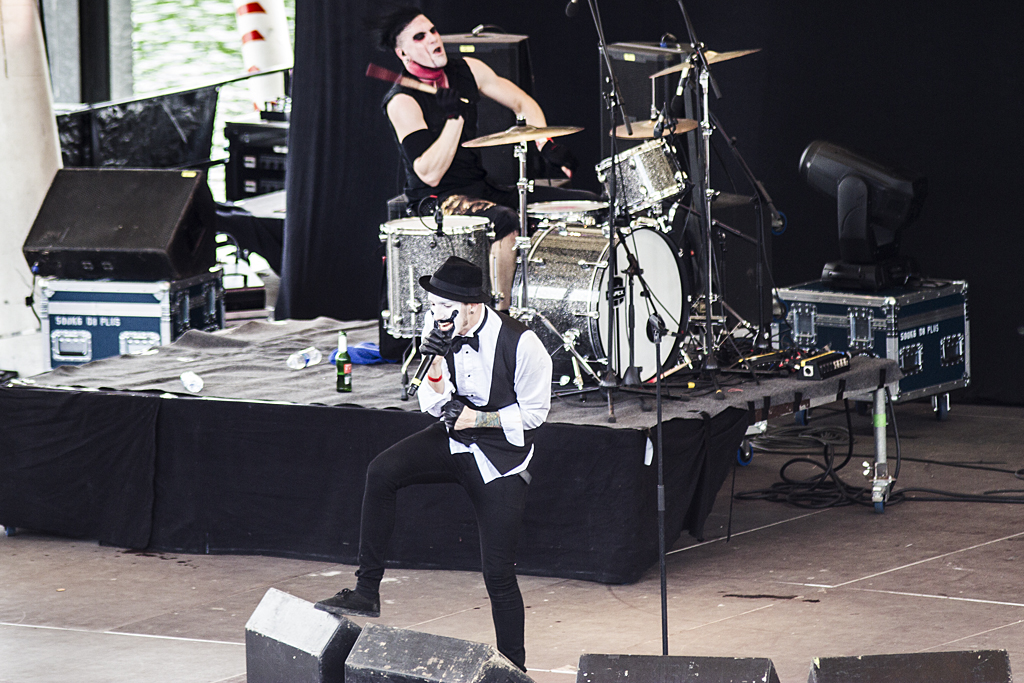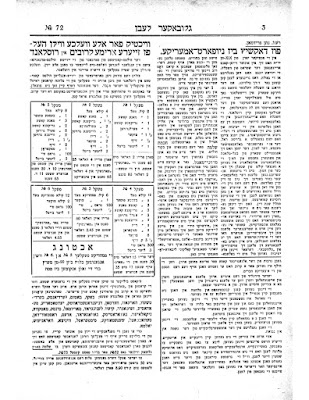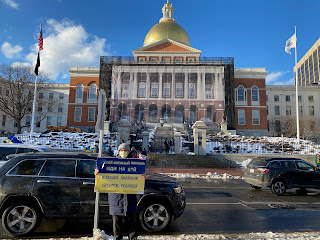Happy Birthday to the World
Edited by Beth Ginsburg Levine
also on facebook
At Touro Synagogue with Congregation Ahavath Israel I had a special experience, the pleasure of opening a new Rosh Hashanah mahzor (prayerbook) that had never been opened or read before. There is always something special about starting to read a book... and reading a book that no one has opened intensifies the experience.
Books have lives of their own which begin, not when they are printed, but when they are opened with the intention of reading them for the first time. Is this the birthday of a book?
The first day of Rosh Hashanah is also the birthday of the world, the traditional day when G-d created the world. This was a two step process. First it was created and then God said that it was good. Perhaps the Ubershter had the same reaction I had when opening a new book.
Congregation Ahavath Israel started worshiping in Touro Synagogue in April, and this was our first Rosh Hashanah.
Services were ably and inspiringly led by Dr. James Herstoff, Rabbi Gershon Klapper, visiting cantor Zvi Ginzberg and Henry Spencer. Cantor Ginzberg was superb in chanting Hinini, when the Cantor prays that he will properly represent the congregation.
Captain Howard Goldman gave a resounding Shoforot. I bet it could be heard in Fall River!
After each portion of Shofar blowing, we sang HaYom Harat Olam (On this Day, the World Came into Being), hoping that God will treat us kindly either as his children or his servants.
In his brief sermon preceding the Shoforot on the first day of Rosh Hashanah, Rabbi Klapper discussed the Torah reading. When she was unable to bear a child, Sarah had encouraged Abraham to have a child with Hagar. After Sarah’s son Isaac was born her attitude changed. She told Abraham to send Hagar and Ishmael, her son with Abraham, away. God told Abraham, “...whatever Sarah tells you, do as she says...”
When Hagar ran out of water she put Ishmael down and moved away, “...for she thought, ‘Let me not look on as the child dies.’ And sitting thus afar, she burst into tears.”
The Torah says, “God heard the cry of the boy.” But how could he hear Ishmael when it was Hagar that cried out? God hears people who do not cry out.
Rabbi Klapper also cited Abravanel who said the story of Cain and Abel demonstrates that God can hear even silent pain. God hears the sound of "Abel's blood crying out to me from the earth."
Abravanel was a statesman, philosopher, Bible commentator, and financier who served rulers in Portugal and Spain, and tried to avert the expulsion of the Jews from Spain. He ultimately fled to Venice where he wrote commentary on Torah, and tried to instill hope in those who suffered from the expulsion.
When the shofar is blown, it provides a voice for all, even those who do not cry out. In our lives sometimes we cry out when we are suffering, but often we don’t. There are people who suffer silently. God hears them all. And we should also respond when people are in need, even if they don’t cry out.
President Paul Tobak spoke briefly to the congregants, wishing all a good year and said that the barriers to entry at Ahavath Israel were not high and that new members were welcome.
Bible translations, Sefaria
About Abravanal, Wikipedia



